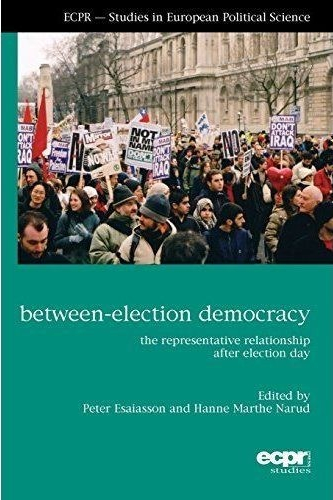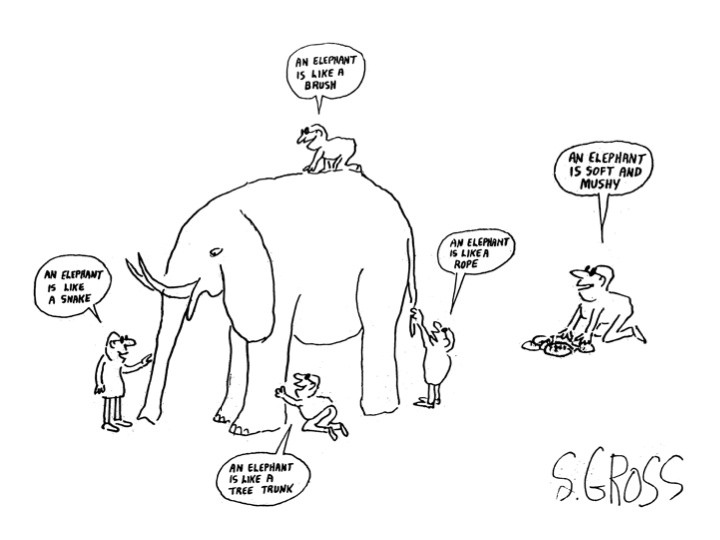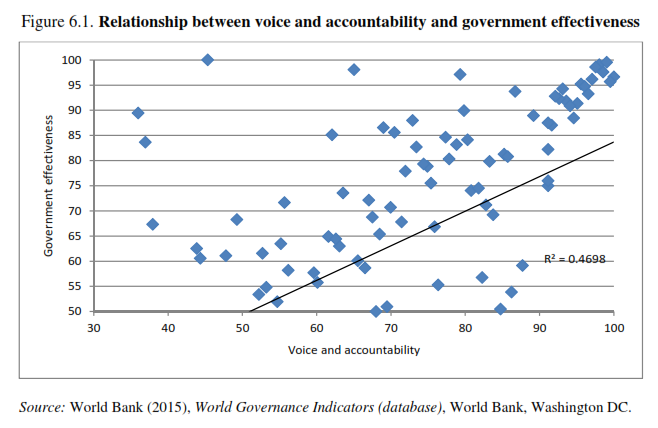…it is critical that we look beyond the conventional focus on elections, campaign finance reform, and voting rights. There is no question that these are critical areas of concern, and necessary preconditions for meaningful democracy reform. But these areas are also well-studied and understood by many of us in the field. In this report, we hope to highlight some of the other dimensions that seem to be essential to an improved and vibrant democratic society: new forms of organizing and community engagement; new institutional strategies for participation at the national and local levels; and a greater self-consciousness about how to build multi-racial constituencies and alliances to make our democracy more inclusive. (2-3)
That’s Hollie Russon Gilman and K. Sabeel Rahman in the introduction to their New America report, Building Civic Capacity in an Era of Democratic Crisis. There’s a number of useful analyses in the report, and some compelling conceptual and rhetorical moves (like distinguishing between “us populism” and “them populism”). But this emphasis on considering democracy as something that happens in-between elections is what caught my eye. It’s a rare focus in scholarship on political communication and democratic theory, and can help build some important bridges between disciplines.
The campaigns, processes, participation and outcomes of elections dominate the study of political communication, political processes and democratic theory. The exception to this proves the rule, as evidenced by deliberate rationale of the 2011 ECPR symposium on Between-Election Democracy. This work supported a small body of related research, concerned with the concept of government responsiveness, closely related, but distinct to studies of political efficacy (Esaiasson et al, 2015).

In broad strokes, this literature suggests that political preferences matter immensely, both for provoking government responsiveness, and for how responsiveness is perceived. A Swedish study showed that political party representatives were more likely to respond to citizen policy requests outside of electoral cycles when those requests aligned with party policy, though this effect is mitigated by alignment with individuals personal policy preferences. European survey and case study data suggest that the political preferences of citizens directly and dramatically impact the degree to which government responsiveness is met with approval, or even noticed by citizens (Rosset et al, 2016; Bowler, 2016; Esaiasson et al, 2016; Christensen et al, 2015). Another notable thing about this body of work is its distance from accountability studies. I haven’t found a single reference or research object linking it to that motley collection of practitioner-engaged research that tries to identify and assess the tactical viability of strategies and drivers for government responsiveness, however loosely conceptualized (Kosack & Fung, 2014; Gaventa & McGee, 2013; Peixoto & Fox, 2016).
Before questioning the gap, it’s worth looking at some of what makes these two bodies of work distinct. On the one hand, political science focused on responsiveness between elections tends to look at relationships between individuals, party representatives on the one hand, and contact from individual citizens and the effects of responsiveness on individual citizens on the other (Esaiasson & Wlezien, 2016). Government responsiveness in accountability studies, on the other hand, is interested in the conditions for responsiveness by institutions, often to the aggregated or intermediated demands of citizen through voice and accountability initiatives.
(Somewhere in the middle and bouncing around the periphery, we’ve also got work on e-participatory mechanisms that regularly applies rigorous evaluation models to specific activities (cf: Laycock, 2014), but maintains a consistently awkward relationship to broader questions of democratic governance and democratic theory (Grönlund, 2009). But let’s save that for later.)

The substantive gap political science and accountability studies’ focus on government responsiveness is problematic. One would like fledgling efforts to conceptualize governance beyond elections to be less divergent. Perhaps more importantly, the gap between them is also methodological. Political communication research on responsiveness tends towards quantitative methods, causal analysis and rigorous conceptual distinctions, while the majority of accountability studies has access to rich field-level data, most often packaged in anecdotal case studies.
The Russon Gilman and Rahman report offers a useful conceptual and normative foundation to bridge this gap. Their recommendations are built on complementary capacities and functional interaction between government institutions and society. This structural parity can be powerfully affected by election campaigns and outcomes, but it’s a model of democratic governance that has to be deliberately build and supported well beyond the electoral cycle. As the report notes later, drawing on Tilly (2007),
…while we tend to associate democracy with specific institutional forms such as elections, at its core, democracy is fundamentally about a type of relationship between citizen and state—one where constituencies can mobilize and make binding claims on policymaking institutions.
This notion of binding claims resonates well with traditional theories of accountability, and manages to couch this understanding as a credible response to the crisis of trust, engagement and efficacy that has dominated recent politics globally. Doing so resonates with the OECD’s work on the relationship between trust and open government, but couching it in definitions of democracy is a distinction with a difference. (Note that the accountability cohort is also attempting this argument, but not yet through research).
 From OECD (2017) Trust and Public Policy: How Better Governance Can Help Rebuild Public Trust. Paris
From OECD (2017) Trust and Public Policy: How Better Governance Can Help Rebuild Public Trust. Paris
This approach opens for a conceptual and methodological bridge between political communication studies of responsiveness and accountability studies. Doing so in a way that speaks to each group of researches might allow accountability studies to access a wealth of methodological and conceptual expertise (not to mention labour), while providing political communication studies with a largely untapped research frontier and a wealth of micro-level data for analysis.
Establishing that kind of bridge between these two communities would be a game changer for both. Doing so requires a strong conceptual bridge and a powerful convening actor to make the first move.
Maybe we’re halfway there.



